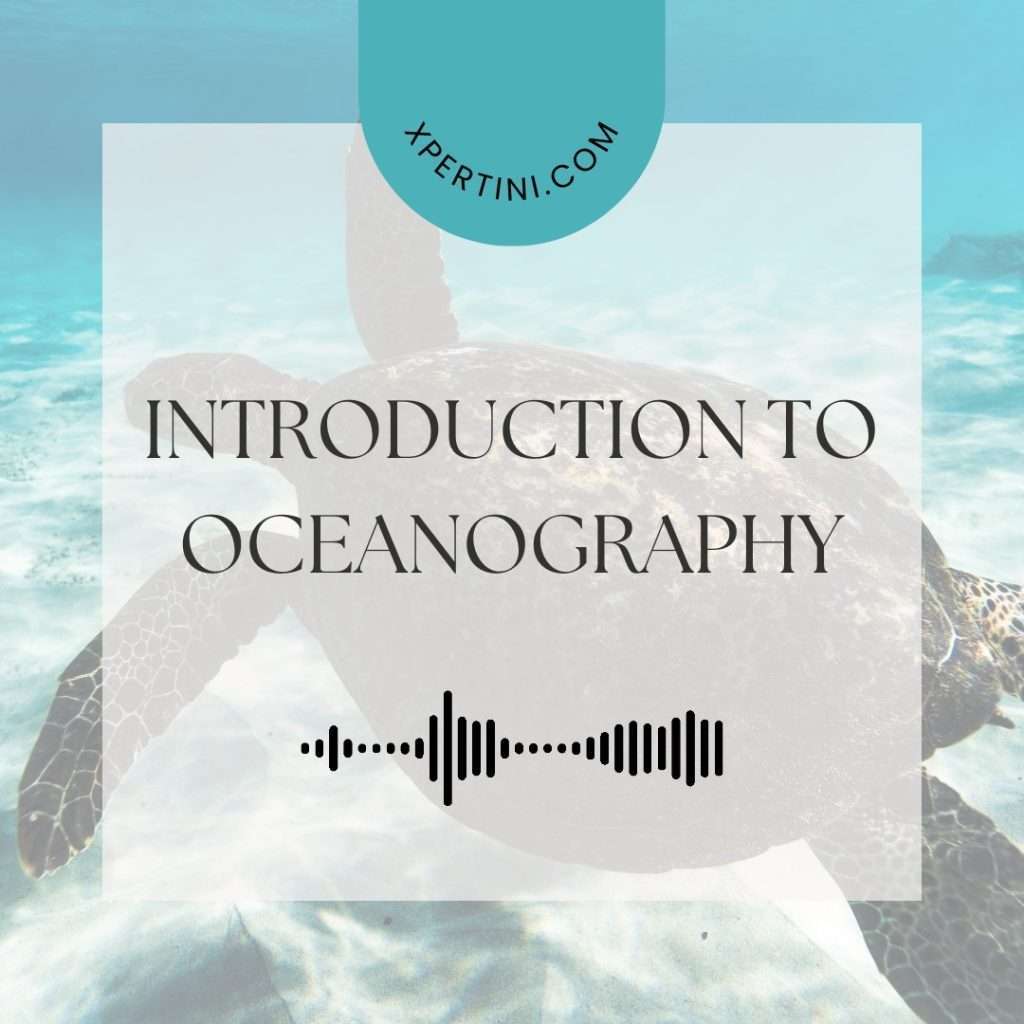Introduction to Oceanography
Course Summary
In this comprehensive course on oceanography, students will delve into the dynamics of Earth’s oceans, exploring the diverse ecosystems, processes, and phenomena that shape our marine environments. Through a structured curriculum, learners will uncover the multifaceted interplay between physical, chemical, biological, and geological aspects of ocean systems, gaining a holistic understanding of the complex forces at work beneath the waves.
From the study of ocean currents and tides to the examination of marine biodiversity and ecological interactions, this course provides a deep dive into the captivating world of ocean science. Students will learn about the critical role of oceans in regulating global climate patterns, including heat transport, carbon cycling, and the distribution of greenhouse gases, illuminating the interconnectedness between oceanic processes and Earth’s climate systems.
Moreover, this course delves into the anthropogenic impacts on marine environments, addressing pressing issues such as pollution, overfishing, habitat destruction, and the consequences of climate change on ocean ecosystems. Through research findings, and real-world examples, students will gain insight into the challenges facing our oceans and explore innovative solutions for sustainable ocean management and conservation.
One of the highlights of this course is the exploration of career opportunities in oceanography and related fields, offering valuable insights into educational pathways, professional requirements, and diverse career paths available to aspiring marine scientists. From marine biology and oceanography to coastal resource management and environmental consulting, students will discover a myriad of exciting career prospects in the field of marine science.
Throughout the course, students will engage with interactive lectures, multimedia resources, practical exercises, and collaborative projects, fostering a learning experience that encourages critical thinking, inquiry, and exploration. By the end of the course, students will emerge with a newfound appreciation for the oceans and equipped with the knowledge and skills to make a positive impact in the field of marine science.
Course Overview
This course serves as an introduction to the fascinating field of oceanography, exploring the diverse world of Earth’s oceans. Students will delve into the fundamental principles, processes, and significance of oceanography in understanding Earth’s systems and their interactions.
Course Objectives
Understand the basic principles and concepts of oceanography.
Explore the geological, physical, chemical, and biological aspects of the ocean.
Examine the role of oceans in global climate regulation and environmental sustainability.
Analyze the impact of human activities on ocean ecosystems and marine life.
Develop critical thinking skills through problem-solving and scientific inquiry in oceanographic contexts.
Course Outcomes
Able to describe the major features and characteristics of Earth’s oceans.
Demonstrate an understanding of oceanic circulation patterns and their influence on climate.
Analyze the chemical composition of seawater and its significance for marine life.
Evaluate the impact of ocean currents on marine ecosystems and biodiversity.
Explain the processes driving oceanic tides and waves.
Identify key marine habitats and their ecological significance.
Apply principles of marine biology to understand oceanic food webs and trophic interactions.
Assess the role of oceans in global nutrient cycles and carbon sequestration.
Analyze human impacts on marine environments, including pollution and overfishing.
Explore career opportunities in the field of oceanography and related disciplines.
Course Audience
Students pursuing careers in marine science, environmental science, or related fields.
Professionals seeking to expand their knowledge of oceanography for career advancement or personal interest.

